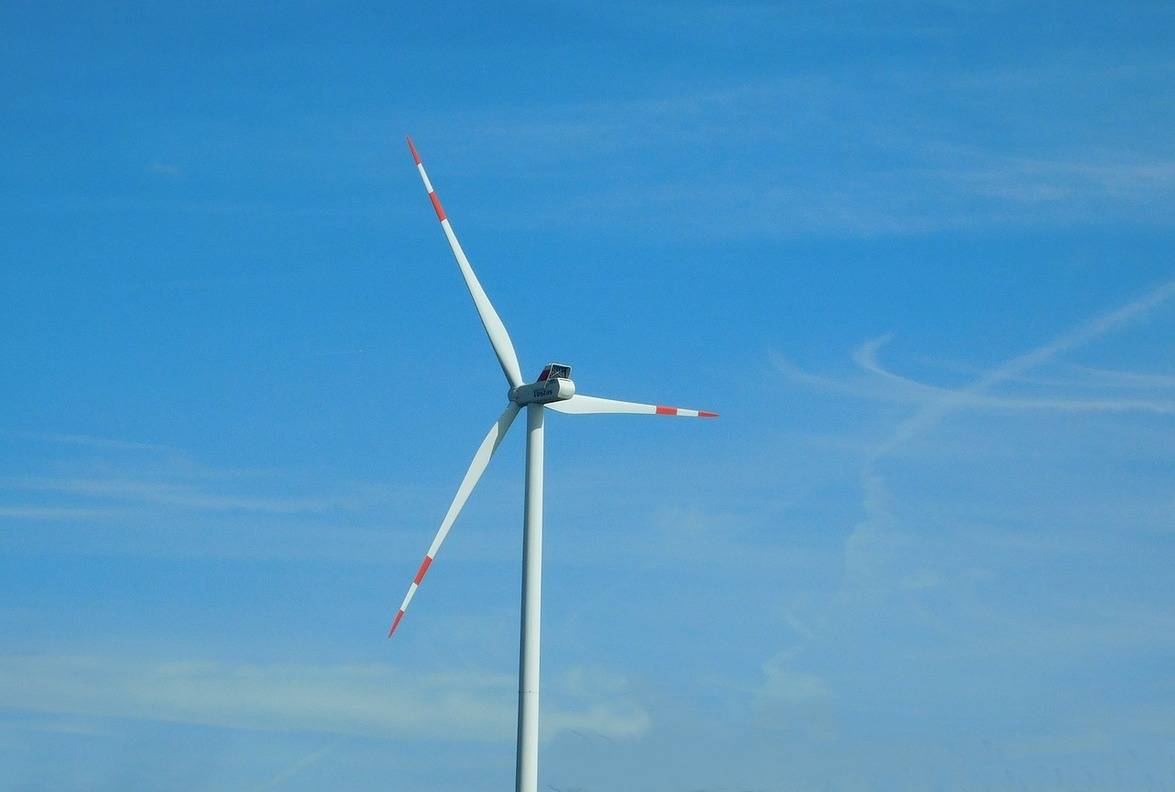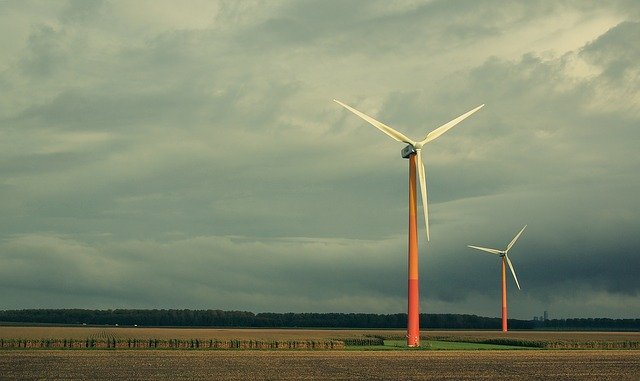
An Opportunity Arises
How COVID-19 Strengthens the Case for a Green New Deal
Read a summary or generate practice questions using the INOMICS AI tool
In the midst of the destruction it’s wrought, the lives and livelihoods it’s taken, and freedom it’s limited, COVID-19 has given us one thing that may yet prove positive - the opportunity to reflect. Under lockdown, we’ve been compelled to consider our pre-COVID lives, the aspects we valued, the parts we endured, and how things could be changed. Separation from reality has renewed our perspective. And it’s come at a convenient time, for a choice hangs in the air. With swathes of the economy on life-support, and recession hitting, we have the opportunity to choose which areas we preserve, and which we let perish. Ultimately, we must decide on which values our future economies are built. As climate catastrophe looms large, the stakes could not be higher.
Securing today, and tomorrow
If the earth is to continue sustaining human life there is only one answer, that, to the scientists at least, is clear: a Green New Deal (GND) and the end of extractivist-based growth. Increasing numbers of economists agree, recognising that a holistic, interventionist approach - like the GND represents - is needed to reanimate economies and address inequality and unemployment, which, while pre-dating COVID-19, have been grossly exacerbated by the disease. Indeed, much that the GND promises - a basic income, job guarantee, to say nothing of climate security - has been made more pressing since the pandemic struck.
 The Green New Deal for Europe, has outlined its implementation as comprising a program of relief, recovery and reform. Relief in the form of a basic income and job guarantee for those out of work or adversely affected by extreme weather events; an economic recovery that swiftly transitions from fossil fuels, invests in green infrastructure, and creates jobs where they are most needed; and reform, like the introduction of a Genuine Progress Indicator, to avoid repeating the mistakes of the past and guarantee humanity’s future. In all, it’s a complete overhaul of the economy, change on a scale we've rarely, if ever, seen outside of wartime. The aims are so sweeping, leaving so little of society untouched, they can be hard to envisage - and perhaps for that reason, that at once it’s both so abstract and expensive, that it’s sometimes struggled to gain traction. Taking advantage of this, its detractors have mocked its ‘bankrupting’ expense and the ‘undue’ faith it places in government intervention. In view of recent events, however, these criticisms are beginning to look weaker.
The Green New Deal for Europe, has outlined its implementation as comprising a program of relief, recovery and reform. Relief in the form of a basic income and job guarantee for those out of work or adversely affected by extreme weather events; an economic recovery that swiftly transitions from fossil fuels, invests in green infrastructure, and creates jobs where they are most needed; and reform, like the introduction of a Genuine Progress Indicator, to avoid repeating the mistakes of the past and guarantee humanity’s future. In all, it’s a complete overhaul of the economy, change on a scale we've rarely, if ever, seen outside of wartime. The aims are so sweeping, leaving so little of society untouched, they can be hard to envisage - and perhaps for that reason, that at once it’s both so abstract and expensive, that it’s sometimes struggled to gain traction. Taking advantage of this, its detractors have mocked its ‘bankrupting’ expense and the ‘undue’ faith it places in government intervention. In view of recent events, however, these criticisms are beginning to look weaker.
Suggested Opportunities
- Conference
- Posted 2 weeks ago
37th RSEP International Conference on Economics, Finance and Business
Between 22 Nov and 23 Nov in Rome, Italy
- Postdoc Job
- (Partially Remote)
- Posted 2 weeks ago
Postdoctoral Position in (Urban) Economics/Applied Econometrics for 1 year (renewable) in DIJON (FRANCE)
At CESAER in Dijon, France
Changing perceptions
‘It costs too much’ its critics chorus. And with projected costs reaching the trillions, trepidation seems fair: it’s far from cheap. Economic research suggesting it would pay for itself - through increased tax receipts and money saved in disaster mitigation - has done little to calm nerves, and the initial down payment, the headline-grabbing trillion dollar figure, has stuck in people’s minds and undermined its viability. But that was then, pre-COVID. Things have changed. The pandemic and responses it elicited, has altered - possibly radically - how we consider government and its ability, when push comes to shove, to spend astronomical sums of money.
For example, in attempting to contain the virus, the UK cities of London and Manchester ended homelessness. To keep the streets clear they provided shelter to all. A stubborn problem that had stumped policy makers suddenly disappeared overnight: the money was found, the problem was gone. Globally, billions more has been spent by governments on bailouts, furlough-schemes, and stimulus packages to prop up economies, making the price of shelter seem like pocket-change. And these outlays, numbers so large they almost lose meaning, are changing our understanding of what government can do, how transformative a force it can be. State intervention is no longer stigmatised, it’s necessary, and what was once branded unrealistic now feels attainable. Economic limitations, often declared the deciding factor in policy making, have been shown to be rather flexible, easily trumped by political will or perceived necessity. When $3 trillion has been committed to save the US economy, are people still expected to believe a GND is too expensive? What use is an economy if the world is on fire?
Goodwill emerges
If government action in COVID times shows a GND to be possible, the widespread solidarity that has emerged in pandemic’s wake may signal the large number who want it implemented. Like many disasters before it, and in contradiction with received wisdom, COVID-19 has revealed the better side of human beings, the side of cooperation and compassion. Under the huge pressure of social distancing, communities have rediscovered old bonds, organising efficiently online to make sure no one is left behind.
In the UK, 400,000 volunteers signed up to assist its overburdened NHS in just over 24 hours. This collective feat suggests more than just a want to help one’s community, neighbours, or relatives, but a belief that everybody is entitled to a certain standard of living. It’s in these new spaces of togetherness that the case for a GND can be couched, and then demanded. It’s tapping into this inclination toward compassion that the transition away from fossil fuels should be sold, and the case made for all that the GND offers: a job for all, fresh air, universal health care, and protection of the vulnerable. It’s by making this connection that progress will be made.
 From the wreckage
From the wreckage
Of course, nothing can offset the tragedy of COVID-19, but we should not pass up the chance it’s offering to reconsider our current trajectory - we are unlikely to have many more. With economies yet to fully return, restrictions still in place, and the investment of huge sums now the norm, the opportunity is clear - a new and green path can be plotted. Rarely has the GND enjoyed such support, and never has it seemed so viable. Riding the wave of human togetherness that has emerged, this could be its moment - finally a solution on the scale of the problem, an escape from certain catastrophe. Will we take it?
-
- Conference
- Posted 2 weeks ago
37th RSEP International Conference on Economics, Finance and Business
Between 22 Nov and 23 Nov in Rome, Italy
-
- Conference
- Posted 1 week ago
CALL FOR PAPERS - Conference on “Fiscal and Monetary Policies for Inclusive Growth in Developing and Emerging Markets"
Between 16 Jul and 17 Jul
-
- PhD Program
- Posted 1 week ago
PhD in Economics, Accounting, Finance or Management
Starts 1 Oct at Berlin School of Economics in Berlin, Germany










